Brazil Infrastructure: Geométrica Project Engineering Company
Leonardo Pedro Lorenzo, President of Geométrica
Leonardo Pedro Lorenzo gives an overview of the engineering and infrastructure sectors in Brazil and presents his project engineering company, Geométrica, mentioning his strategy, challenges to be faced and vision for the future.
Interview with Leonardo Pedro Lorenzo, President of Geométrica
Could you give us an overview of the engineering sector here in Brazil and more precisely an overview of the areas that Geométrica operates in?
The sectors that we are working in here in Brazil are sectors that are in full growth. Geométrica began operating nearly 30 years ago and we have gone through two very difficult decades: the 80s and the 90s. That was when we experienced a greater diversification of the work that we carry out. Today we normally work in projects for highways and roads and we have diversified to work in urban infrastructure and practically all areas in infrastructure that the municipality might require.
My dream is that in every area that we work in, be it sanitation, transport, housing, etc. we have a fantastically qualified team and that each team has great penetration and credibility in the area that they work in. I really want us to be very strong in all areas.
Now since 2000 and currently, Brazil is experiencing a huge demand for infrastructure. The necessity has existed for a long time but in the past there were not the possibilities or facility of investment to attend to these demands as there is today. This may be because Brazil has become closer to many international organizations or perhaps because of the improved economic situation. Today there have been some large investments and many things that weren’t thought possible in the last century have come to pass quite naturally. We now have the resources; there are still many challenges, principally in matters of legislation among other issues but in terms of investment we have many more resources now.
Now, the infrastructure sector is being pressured into carrying out even more projects, we are even struggling to meet this increased demand. The engineering and infrastructure companies have to diversify and further qualify themselves. We are still having difficulties in meeting the demands in my opinion: that might be controversial for some people, perhaps others don’t agree with me. In essence, there is a lot of work to be done and there are relatively few companies working in this field.
In that case, the market is still very open to new specializations or technology that could come from abroad? What could be the possibilities would you say?
I think that today the market is really open to companies coming from abroad. Despite the fact that the Brazilian engineering market is not a very open market, there is the possibility of forming partnerships with Brazilian companies and this is something that we have done. In fact it is necessary in order to face the needs of the government and investors. Today there are many public private partnerships and many partnerships with private companies for investments into infrastructure. These partnerships require companies to be able to operate well and make sure that schedules are met.
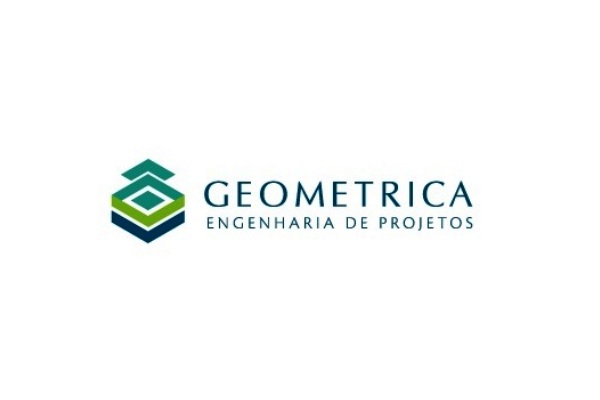
Which areas would you say could benefit from a new technology or know-how?
I would not say that there is a lack of technology here, I would say that it is important that we are always up to date in terms of technology. There are many companies in Brazil that are advanced in terms of technology because this kind of technology was made much more available. We need to increase the number of companies that are using this technology, in diverse areas.
We are quite advanced in terms of roads and highways which is an area that has had quite a lot of private investment, as well as ports and airports, which lately have had quite a bit of coverage here. Brazil is lacking a lot at the moment in terms of investment in railways, perhaps because of the infrastructural background that we have had until now which is based upon highways. However this is soon going to have to change. Therefore investment in railways is fundamental and very welcome. Now, obviously we don’t just need technology in terms of construction and projects, we also need technology in terms of planning, in order to seek a more integrated solution. Many times you have to sell a project or development to a sector that doesn’t really understand how it can be done or doesn’t understand the gains that can be made from the new technology. It is important that the solution is more complete and planned and justified in a better way. This is an exclusive strategy that we have here to sell our services to our clients. It is a strategy to allow us not only to be able to sell our services which is obviously our target and core business but also to sell a solution, by telling the client what they can achieve before even selling them our product as such.
Can you give us an example of this?
We work a lot with the municipalities that in many cases have difficulties in terms of technical expertise. In many cases the city councils are small and not very well structured and so they struggle to understand which improvements could be of benefit for the municipality. Therefore we try to show them what can be done through our consultancy services. We have even given training to some technicians in some councils so that they can better understand what is being proposed to them so that then we can go on to sell them our services. Many times you can be trying to sell your services to someone who doesn’t understand what it is that you are selling. We work in project consultancy because a project can be proposed to a client with the same name as another proposal and they can both take on a variety of forms: it could be offered as a good project with lots of technology or on the contrary a bad project with little technology. Therefore if the client can’t understand the difference between the two proposals then it is going to be rather difficult to sell services to them.
In what kind of area do you do this kind of consultancy? In transport, infrastructure…?
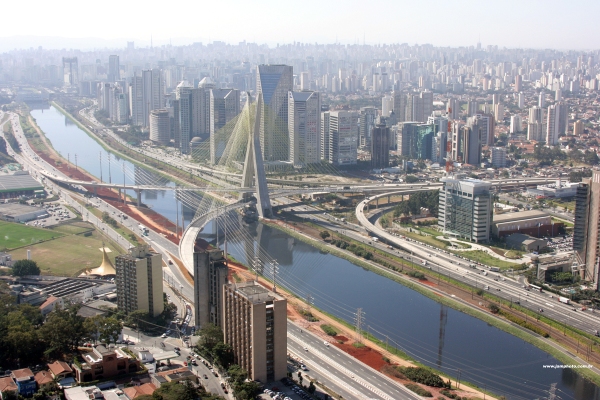
In terms of infrastructure we have consulted councils here in Greater São Paulo. We have offered courses for employees to explain the reasons behind the projects, their features, which characteristics need to be looked into etc. Many times this was questioned internally because people said that we are teaching people how to do a project and so they aren’t going to hire us anymore. However that isn’t the case. These people in the councils are not going to do the project themselves; the idea is that they understand what is going to be done and what is involved in a well carried out project.
What is the company´s growth strategy?
For a long time our plan has been to invest in qualifications and training. There have been partnerships which have given us new technology but the training of our workforce and team and the search for talent in the market is an essential part of our strategy so that we can have a team that has a better dominium over the technology that we use. Our commercial strategy is founded a lot on our technological strategy. We want to perform very well technically so that the commercial side of things is made simpler. When you can stand out technologically you have more credibility. Even though our company is not that big, our team is made up of employees who have been with us for 20 years or more. This adds a lot of value to our services; the team is very important to the client. You can do a job today for a client 20 years after the previous job you did for them and your client can find that there is still an employee or various employees there that worked on that first job 20 years ago. We are aiming to have a commercial strategy that offers that kind of thing.
Do you give incentives for your employees to become further qualified? What is your strategy for finding such quality engineers?
Today in Brazil it is not that easy to maintain a team because all the companies are looking for qualified staff in this market. There is a lot of competition which means you have to have means of capturing the expertise for your team because otherwise you will lose out. Therefore here we offer incentives for training courses and for post qualification courses. We offer incentives for doctorates and masters. I suppose the most important part of the strategy is looking for a better engagement of the team alongside an improved technological expertise. In that way, the team will feel more motivated and will be stronger. For that very reason it is also important to aim for projects that are of a greater importance. Despite our small size we are working on some very important projects which motivates the team.
Do you look for staff outside of Brazil?
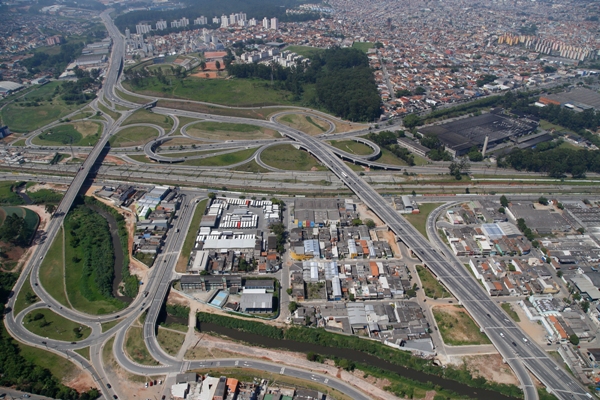
Yes, about 5 or 6 years ago we began to look for talent, particularly engineers from abroad, specifically from Spain and Portugal. We have already contracted some people, we have done all of the paperwork, etc., so that they can come and work here legally. We work with these employees that have a lot of experience and who are highly qualified. They bring a different culture with them, which is really important to our team because they have different knowledge of how the outside world is doing things. This in conjunction with the jobs that we have done abroad has really helped us a lot. The team feels more willing to have foreign members.
I understand that you are working on a project in Peru. Can you tell us a bit more about that?
In Brazil the main area that we work in is in finding solutions for infrastructure. Our clients here ask us for a solution and they show us a problem; we prefer that they present us with a problem so that we can find the solution. In Brazil amongst the jobs that we have carried out are many projects that were created with solutions here. There were problems that existed and we created solutions that were then detailed further and projects were built. In Peru we were called to find a solution, in this case it was a road solution and we arrived at a solution for urban infrastructure in Lima which in the end was built as what they call there a private initiative and what we here call a public private partnership. We were contracted to carry out the executive project and now they are concluding the work. Basically it is a highway project that involves 10 to 11km that includes a 2km tunnel underneath the river Rimac in Lima. It is a very interesting job. The investment going into it is around 500 million dollars and the project has provided us with work over there for the past 4 or 5 years.
Can you tell us about other jobs?
As of last year we have a subsidiary open in Peru. We are also in the process of closing an office to be able to continue working in the Peruvian market. It isn’t as big of a market as the Brazilian market but it is a stable country that is growing, it has clear rules and quite modern legislation so it is a market that interests us a lot.
Could this be replicated in other places?
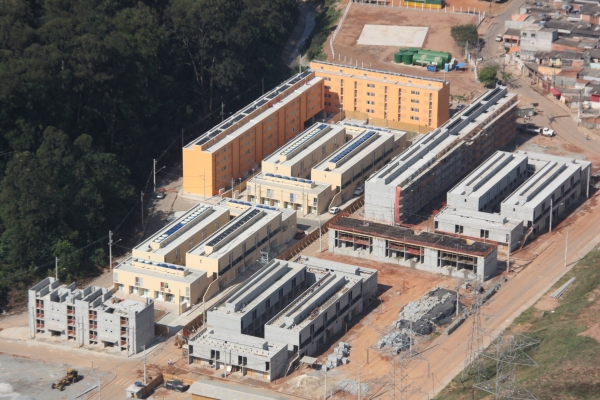
Yes. At the moment we have to consider our investment capacity but we have been looking at other countries. We are interested in countries that have both political and financial stability and that respect contracts, which is obviously fundamental. Without a doubt we are interested in the idea. We have worked in Angola through a Brazilian company although that was less than a year of work. We are open to the possibilities and we are thinking of developing new projects.
Do you always work via Brazilian companies when you work on these projects abroad?
In the case of Peru and Angola, yes we did work through Brazilian companies who asked us to participate in those projects. Now our plan for Peru is to change this working relationship and to begin to operate independently in Peru and to begin participating in bids and government tenders. As I said we are opening an office there now. Currently our subsidiary is a 100% Peruvian company so we want to be working within that Peruvian market.
Would you be interested in forming partnerships with foreign investors?
Yes, we are always open to new partnerships, mainly with investors or groups who can bring new technology that can be added to our portfolio so that we can offer new services to our clients. Equally we could hold talks with potential financial investors because the market is really large here in Brazil and so you have to be very competitive. Therefore if you can have a bit more capital and more technological capacity then there really is a large amount of work out there to be done. Today we just aim for the work that we know we have the capacity to do. Today we have a rather atypical situation in that we have to refuse some work because the volume of work on the market is so large. Thus, if an investor can help this process of growth and consolidation of the market they are very welcome.
What kind of investor would you be looking for? Consultancy companies, engineers, companies in the transport or industrial sector…?
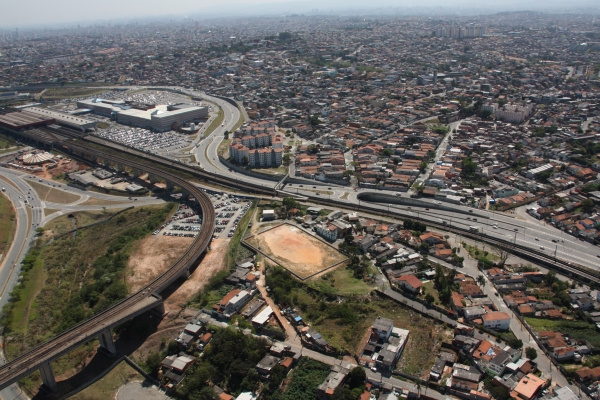
The majority of the investors that we have at the moment are in the transport sector. The lack of mobility in Brazil is a very serious issue at the moment. Therefore companies that have experience in matters of mobility, whether in terms of consultants, technology, materials or construction are welcome despite the competitors. If you can bring in business that is integrated and can be offered in a more complete manner then you are welcome. For example if there is an investor that has resources that they want to invest or even groups that are interested in doing this kind of work in infrastructure whether it be in railways, highways, or urban infrastructure, we could become partners and do great things finding solutions that bring good returns for the investors.
What are the main challenges that this company faces?
Today I would say that our main challenge is to ensure that we are always learning more and more and becoming further qualified. Another challenge is making sure we maintain our team because the market has grown a lot here in Brazil. We also have to consolidate an image of the highest technological quality. We really strive to be a credible company in our market. Many times challenges arise from clients who are not very well prepared for the management of these contracts. Sometimes we take on some commercial risks to be able to maintain integrity and to deliver a job well done. It is important to maintain a good line of work which often is not that easy due to the situation of the market, however our line of work has sustained us for 30 odd years.
How to you see the company in 5 years´ time?
My dream is that in every area that we work in, be it sanitation, transport, housing, etc. we have a fantastically qualified team and that each team has great penetration and credibility in the area that they work in. I really want us to be very strong in all areas. I don’t want to be a strong company on the whole but with some weak areas. I want to develop a diversified company that is really specialized in the sectors that it operates in. I want each of these areas to be very competitive.
Is there anything that you would like to add?
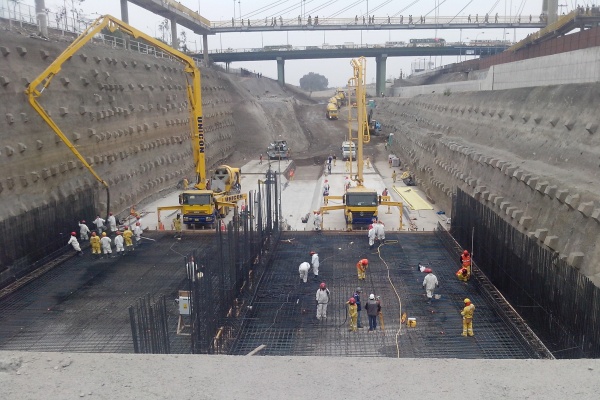
I think that one thing that is worth mentioning is that we are working quite intensively in this sector. Economists will say that Brazil is experiencing a crisis at the moment, and well there is a crisis in the whole world at the moment but in the infrastructure sector we have so much to do. One thing that we are seeing once more is that people here are willing to pay for good services. We have the example today of the highways which are privatized and where people pay the tolls willingly because the service is good. I think that investors´ fears of putting their money into something which the population is going to reject and therefore not seeing returns on the investment is not a problem today in Brazil. I don’t think this is going to be a problem in the future either because the population is really lacking in good, important solutions. I mentioned the issue of mobility which at the moment is really critical in the big cities because of policies that were used which were really car orientated and so there is now a huge lack of public transport. People say that Brazilians use their cars so much but that is only the case because there is no public transport! No one likes to get stuck in traffic but some people have no alternative. What I would suggest for investors would be for them to try to bring solutions, but more specifically well thought out solutions that don’t depend on one main local factor. If you are an investor that has a solution and a construction plan then do come and show us your proposals. I think things need to be a bit more planned out here. We have always lacked somewhat in planning. We spend very little time planning to then try to integrate many different things which is when the lack of good planning really shows! We need to bring in the culture of forward planning and scheduling. At the moment I don’t see a huge crisis in the country, I see the difficulty of finding a good team. There is a lot of growth in this sector, an example of which is that engineering courses are much more competitive than medicine courses, which historically have always been the most sought after courses in Brazil. All of this is due to the fact that people are well aware of the fact that infrastructure in Brazil is a matter of great importance and it is being treated as such and therefore is going to generate a lot of employment.
According to the National Policy on Urban Mobility (12.587/12), implemented in January 2012, as of 2015 municipalities with populations of over 20 thousand are going to have to have a urban mobility plan in order to continue receiving funding from the government. Thus, all of these municipalities have been organizing their plans because they will have to be implemented in 2015. This means that this is a great moment for investors to come and bring their technology and knowledge to help with these mobility issues.. We have obviously had the projects for the World Cup and the Olympics but these plans have already been made, but there are still great opportunities for investors to come and work in matters of urban mobility.
FAIR USE POLICY
This material (including media content) may not be published, broadcasted, rewritten, or redistributed. However, linking directly to the page (including the source, i.e. Marcopolis.net) is permitted and encouraged.